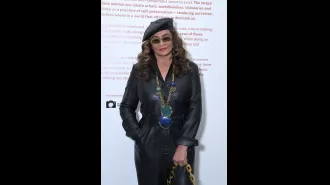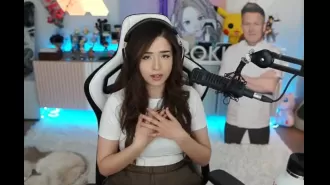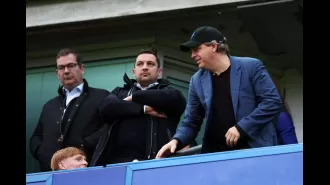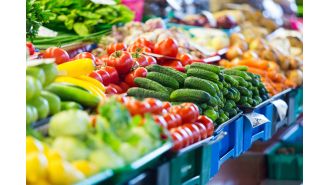Colorado's gay rodeo has overcome its past opposition but current financial struggles may affect its future.
Despite overcoming obstacles such as AIDS and discrimination, the future of gay rodeo, including events like the Rocky Mountain Regional Rodeo, remains uncertain.
July 7th 2024.
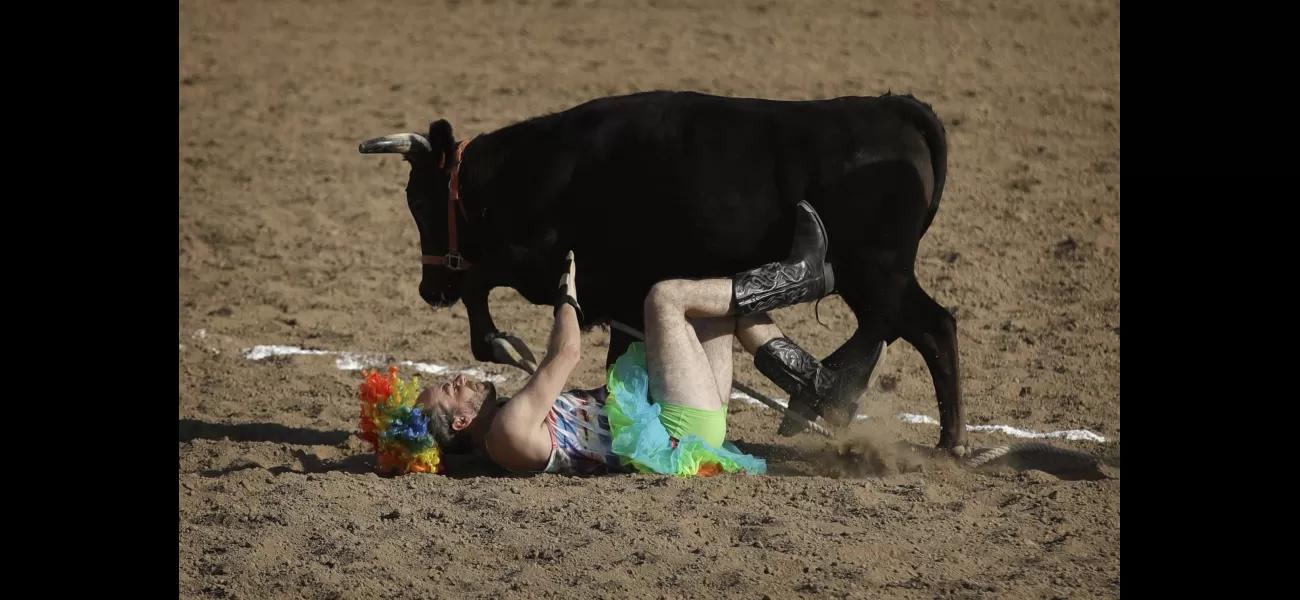
For over four decades now, the Colorado Gay Rodeo Association has been hosting an annual rodeo that celebrates and embraces the LGBTQ+ community. This rodeo, which began in 1983, has become the longest-running event of its kind in history. It's a testament to the strength and resilience of the community, as well as the enduring spirit of inclusivity and diversity.
The main event, known as the Rocky Mountain Regional Rodeo, takes place in Denver and is part of a circuit of rodeos that have spread across the United States and even into Canada at times. It's a celebration of not only rodeo culture, but also the LGBTQ+ community, and it's a place where all are welcome to come together and celebrate their shared love for the sport.
During the Rocky Mountain Regional Rodeo in 2009, Just John, a roping contestant, was captured practicing his skills with fellow contestant, Jesse Tudela. This event is a prime example of the camaraderie and support that is present within the LGBTQ+ rodeo community. Despite facing cultural pushback, the Denver rodeo has persevered and is now celebrating its 41st anniversary in July of 2024.
In our book, "Slapping Leather: Queer Cowfolx at the Gay Rodeo," we explore the origins of this rodeo and how it has become a symbol of progress and acceptance. Not only has it provided a space for the LGBTQ+ community to come together, but it has also been at the forefront of fighting against discrimination and the AIDS crisis.
The roots of gay rodeo can be traced back to the Sierra Nevada mountain range in Nevada, where businessman Phil Ragsdale held the first gay rodeo in 1976 as a fundraiser for local community organizations. Despite facing difficulties with renting space and animals due to the event being for queer people, the first rodeo was a success, and it soon became an annual event that drew in thousands of attendees.
In 1981, Charlie's Denver, a gay country western bar, opened and quickly became a hub for cowfolx across the gender and sexuality spectrum to gather and form a community. Many of the friends who met at this bar traveled together to the Reno rodeo in 1982. Inspired by their experience, they decided to hold their own rodeo in Denver the following year, thus creating the Rocky Mountain Regional Rodeo.
This marked the first time a gay rodeo was held outside of Nevada, but it was only the beginning. By the end of 1986, four more gay rodeos had been established in cities such as Oklahoma City, Phoenix, Los Angeles, and Dallas. The success of the Denver rodeo and the leadership of John King and Wayne Jakino helped pave the way for these other rodeos to take place across the United States and Canada.
The LGBTQ+ community has always been a driving force for positive change and progress, and the gay rodeo is no exception. Through their love for rodeo and their unwavering determination, they have created a space where everyone is welcome and embraced. These rodeos are not only a celebration of rodeo culture, but also a celebration of the diversity and strength of the LGBTQ+ community.
For over 40 years, the Colorado Gay Rodeo Association has been proudly hosting a rodeo specifically for the LGBTQ+ community. Since its inception in 1983, this annual event has become the longest-running of its kind in history. The flagship event, known as the Rocky Mountain Regional Rodeo, is a part of a circuit that has spanned across the United States and even into Canada.
One of the main attractions at the rodeo is the roping event, where contestants like Just John and Jesse Tudela practice their skills and compete against one another. The rodeo is a celebration of not only the LGBTQ+ community, but also the rich history and culture of the American West. Despite facing pushback from some parts of society, the Denver rodeo has stood the test of time and will be celebrating its 41st anniversary in July of 2024.
In our book, "Slapping Leather: Queer Cowfolx at the Gay Rodeo," we delve into the origins of this unique event, as well as its impact on combating discrimination and raising awareness about the AIDS crisis. While the rodeo may have started in the Rocky Mountains, its roots can be traced back to the Sierra Nevada mountain range in the western United States. Businessman Phil Ragsdale organized the first gay rodeo in 1976 in Reno, Nevada as a fundraiser for local community organizations.
However, the road to organizing the event was not without its challenges. Ragsdale faced difficulties in finding a venue and animals for the rodeo, as many owners and contractors were hesitant to support an event for queer people. Despite this, the first National Reno Gay Rodeo was a success and grew in popularity over the years. In 1981, a gay country western bar called Charlie's Denver opened in Colorado, providing a safe space for cowfolx of all gender and sexual identities to gather and form a community.
Thanks to the efforts of John King and Wayne Jakino, who managed Charlie's Denver, the Rocky Mountain Regional Rodeo became a catalyst for other gay rodeos to be organized across the United States and Canada. By the end of 1986, four more rodeos had been established in Oklahoma City, Phoenix, Los Angeles, and Dallas.
The leadership of the Colorado Gay Rodeo Association has not only brought joy and camaraderie to the LGBTQ+ community, but it has also paved the way for other queer rodeos to thrive. The legacy of the Denver rodeo continues to inspire and unite people from all walks of life, making it an essential part of the LGBTQ+ community and the American West.
The main event, known as the Rocky Mountain Regional Rodeo, takes place in Denver and is part of a circuit of rodeos that have spread across the United States and even into Canada at times. It's a celebration of not only rodeo culture, but also the LGBTQ+ community, and it's a place where all are welcome to come together and celebrate their shared love for the sport.
During the Rocky Mountain Regional Rodeo in 2009, Just John, a roping contestant, was captured practicing his skills with fellow contestant, Jesse Tudela. This event is a prime example of the camaraderie and support that is present within the LGBTQ+ rodeo community. Despite facing cultural pushback, the Denver rodeo has persevered and is now celebrating its 41st anniversary in July of 2024.
In our book, "Slapping Leather: Queer Cowfolx at the Gay Rodeo," we explore the origins of this rodeo and how it has become a symbol of progress and acceptance. Not only has it provided a space for the LGBTQ+ community to come together, but it has also been at the forefront of fighting against discrimination and the AIDS crisis.
The roots of gay rodeo can be traced back to the Sierra Nevada mountain range in Nevada, where businessman Phil Ragsdale held the first gay rodeo in 1976 as a fundraiser for local community organizations. Despite facing difficulties with renting space and animals due to the event being for queer people, the first rodeo was a success, and it soon became an annual event that drew in thousands of attendees.
In 1981, Charlie's Denver, a gay country western bar, opened and quickly became a hub for cowfolx across the gender and sexuality spectrum to gather and form a community. Many of the friends who met at this bar traveled together to the Reno rodeo in 1982. Inspired by their experience, they decided to hold their own rodeo in Denver the following year, thus creating the Rocky Mountain Regional Rodeo.
This marked the first time a gay rodeo was held outside of Nevada, but it was only the beginning. By the end of 1986, four more gay rodeos had been established in cities such as Oklahoma City, Phoenix, Los Angeles, and Dallas. The success of the Denver rodeo and the leadership of John King and Wayne Jakino helped pave the way for these other rodeos to take place across the United States and Canada.
The LGBTQ+ community has always been a driving force for positive change and progress, and the gay rodeo is no exception. Through their love for rodeo and their unwavering determination, they have created a space where everyone is welcome and embraced. These rodeos are not only a celebration of rodeo culture, but also a celebration of the diversity and strength of the LGBTQ+ community.
For over 40 years, the Colorado Gay Rodeo Association has been proudly hosting a rodeo specifically for the LGBTQ+ community. Since its inception in 1983, this annual event has become the longest-running of its kind in history. The flagship event, known as the Rocky Mountain Regional Rodeo, is a part of a circuit that has spanned across the United States and even into Canada.
One of the main attractions at the rodeo is the roping event, where contestants like Just John and Jesse Tudela practice their skills and compete against one another. The rodeo is a celebration of not only the LGBTQ+ community, but also the rich history and culture of the American West. Despite facing pushback from some parts of society, the Denver rodeo has stood the test of time and will be celebrating its 41st anniversary in July of 2024.
In our book, "Slapping Leather: Queer Cowfolx at the Gay Rodeo," we delve into the origins of this unique event, as well as its impact on combating discrimination and raising awareness about the AIDS crisis. While the rodeo may have started in the Rocky Mountains, its roots can be traced back to the Sierra Nevada mountain range in the western United States. Businessman Phil Ragsdale organized the first gay rodeo in 1976 in Reno, Nevada as a fundraiser for local community organizations.
However, the road to organizing the event was not without its challenges. Ragsdale faced difficulties in finding a venue and animals for the rodeo, as many owners and contractors were hesitant to support an event for queer people. Despite this, the first National Reno Gay Rodeo was a success and grew in popularity over the years. In 1981, a gay country western bar called Charlie's Denver opened in Colorado, providing a safe space for cowfolx of all gender and sexual identities to gather and form a community.
Thanks to the efforts of John King and Wayne Jakino, who managed Charlie's Denver, the Rocky Mountain Regional Rodeo became a catalyst for other gay rodeos to be organized across the United States and Canada. By the end of 1986, four more rodeos had been established in Oklahoma City, Phoenix, Los Angeles, and Dallas.
The leadership of the Colorado Gay Rodeo Association has not only brought joy and camaraderie to the LGBTQ+ community, but it has also paved the way for other queer rodeos to thrive. The legacy of the Denver rodeo continues to inspire and unite people from all walks of life, making it an essential part of the LGBTQ+ community and the American West.
[This article has been trending online recently and has been generated with AI. Your feed is customized.]
[Generative AI is experimental.]
0
0
Submit Comment

